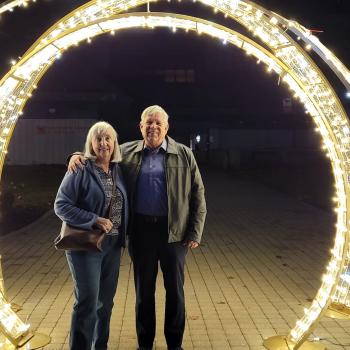The house was sold out, and it was the gala opening of the symphony season for the Lexington Philharmonic. But it was not the opening of just any season, but of the 50th season of this symphony orchestra. Lexington is very fortunate, as a city of 330,000 to have a full-fledged symphony and to have it supported so well for a half century. Of course part of this is that because of the fine music degrees and programs at U.K. There is a good talent pool to choose from for playing in the orchestra, to support the older adult talent already present in Lexington.
Another key of course is that we have major corporate sponsors like Toyota, or the new Tiffany’s Jewelry manufacturing plant in Lexington. On top of that, Singletary auditorum, built for just such purposes is a state of the art, acoustically excellent hall. Wynton Marsalis, when he came here with his Lincoln Center jazzbos, commented that he was very impressed with the hall, and said we were blessed to have such a hall in Lexington. He is right.
All of this explains why in the past year we have had both Itzak Pearlman and Midori, the great violinist from Oska come and play with our Philharmonic. Last night’s concert was a great start to the year— it began with Berlioz’s Roman Carnival Overture, and was followed by Beethoven’s challenging and beautiful Violin Concerto.
Midori walked on stage carrying her 1734 Guenerius violin and wearing a flower print dress. Her diminutive fingers were fairly flying over the fingerboard of the violin. Her cadenza’s were amazing, and she was so deeply into the music that she mostly closed her eyes, and swaying up and down and side to side to the music. I have never seen someone put so much of their whole body into a concerto. She rightly got several standing ovations. There is no musical experience like seeing a full orchestra all playing in harmony and in perfect ensemble supporting a virtuoso soloist at the top of her game. It is a picture of the beauty and unity of the kingdom of God come on earth.
After intermission, we were treated to Tchaikovsky’s selections from Eugene Onegin, followed by Ravel’s sombre La Valse, written at the end of WWI in 1919 when no one felt like waltzing.
You know how it is when you have had a fabulous meal and think you couldn’t possibly manage dessert and then they bring out something so scrumptious you can’t resist. In this case it was the delightful Overture to Candide by Leonard Bernstein— fabulous. We all went home musically stuffed but with big smiles on our faces. Our Russian daughter especially loved the Tchaikovsky— of course. A good time was had by all.
















